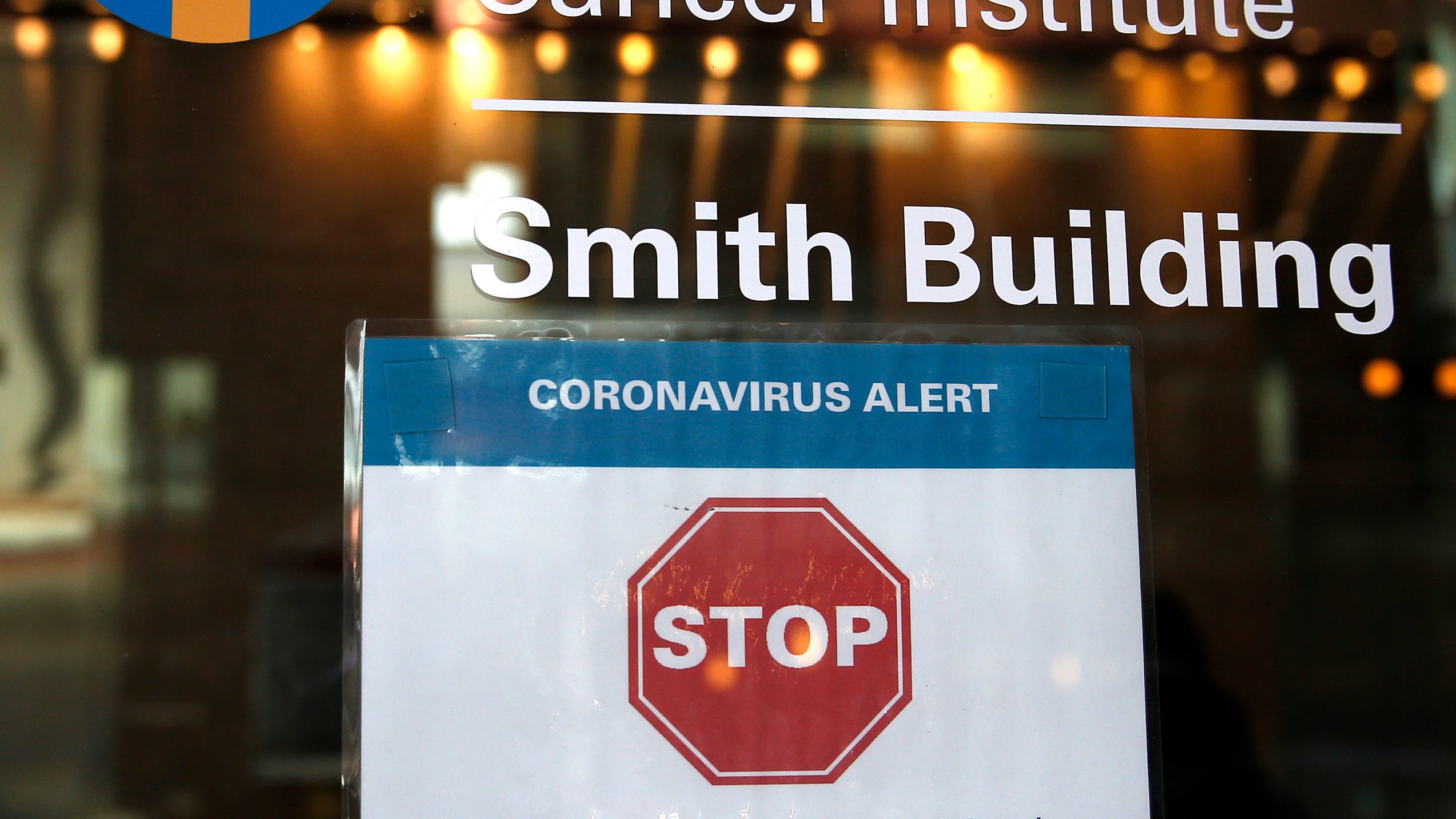
Jessica Rinaldi/The Boston Globe via Getty Images
As the cases of coronavirus have surged and an increasing number of Americans are sheltering in place, more people are worried about catching COVID-19 from their neighbors. And while the prospect of having an infected neighbor in a cul-de-sac is scary, it’s far more terrifying if you live in a large apartment, co-op, or condo building with everyone sharing (and even coughing in) the same elevators, laundry rooms, and other common spaces.
The issue: At present, building owners and boards aren’t legally required to disclose whether someone tests positive for COVID-19—even if many of the building residents are elderly or have underlying health conditions, say real estate attorneys. However, federal, state, and city laws seem to be changing by the day, so new requirements could come into play at anytime.
But most buildings are sending emails and memos to let folks know if one of their neighbors has contracted the virus so that they can take extra precautions. However, real estate attorneys and lawyers have strongly advised boards, building managers, and property managers against revealing who’s contracted the virus and which unit they live in. And residents can’t be evicted or asked to leave just because they’re sick.
“From a legal perspective, we’re in uncharted territory,” says Omaha, NE–based housing attorney Scott Moore of Baird Holm. “The federal Fair Housing Act prohibits inquiries into whether a tenant has a disability and the nature and extent of their disabilities. That would include questions about medical conditions.”
But federal and state regulations are being shaped and reshaped as the crisis mounts. So just because there aren’t COVID-19 disclosure requirements today, doesn’t mean there won’t be tomorrow.
“The concern is privacy issues versus contaminating an entire building,” says real estate attorney Edward Mermelstein, a partner at One & Only Holdings in New York City. “Every management agent is doing this by the seat of their pants.”
What can building managers disclose about a resident who has COVID-19?
There also aren’t any universal guidelines for management companies and boards on what they can tell worried neighbors about an infected person living in their building.
Some aren’t informing residents, but some are. In fact, some are even disclosing which floor those folks live on—which many real estate attorneys believe is a step too far in compromising the sick person’s privacy.
“The idea is to keep others from getting infected,” says Mermelstein.
It’s also to protect the health of building staff. No one wants superintendents or other apartment building personnel to unknowingly enter an apartment where someone is sick to make a minor repair and wind up contracting the virus.
But most buildings managers are highly sensitive about the need to keep information that an infected resident isn’t comfortable with from being blasted out there.
“Disclosing against the wishes of the infectee could potentially expose the board to a lawsuit,” says New York City–based attorney Aaron Shmulewitz, who represents co-op and condo boards. He is a partner at Belkin Burden Goldman.
Buildings that don’t disclose that an infected person lives there could be opening themselves up to a lawsuit, warns Michael Spence, a Seattle-based real estate attorney with Helsell Fetterman.
“God forbid someone catches the virus from a neighbor,” Spence says.
Are residents required to inform building management if they contract COVID-19?
Concerned neighbors may have to keep guessing if someone in their building has gotten sick with the virus. As we’ve mentioned, legally folks aren’t required to let the people a flight below, down the hall, or next door know about their health conditions, and their neighbors don’t have a legal right to know either.
Ethically, however, some folks argue that they should. This allows management to clean the infected person’s hallway, elevator, and stairwells a little more frequently and maybe even add an extra bottle of hand sanitizer in the lobby. And it allows residents to be extra careful when entering the package room or opening doors in the building.
But some folks may fear the stigma that comes along with being the person in 5B with COVID-19.
“It’s the right thing to do. It’s the neighborly thing to do,” says attorney Shmulewitz. “[But] once you let it out, it could be impossible to get it back in. That’s why many people may not disclose it.”
The same privacy protections for residents may not extend to building employees. Residents are going to want to know if an infected handy person has been in their unit.
And if such workers do come forward, buildings can’t contain them in their apartments or demand that they don’t use elevators or other common spaces without a court order. These folks also can’t be evicted or asked to temporarily leave just for having the virus.
“There’s no legal playbook for any of this,” says Shmulewitz. “We’re all making it up as we go along.”
The post Do You Have the Right To Know If Your Neighbors Have Coronavirus? appeared first on Real Estate News & Insights | realtor.com®.
source https://www.realtor.com/news/trends/do-you-have-the-right-to-know-if-your-neighbors-have-coronavirus/
No comments:
Post a Comment